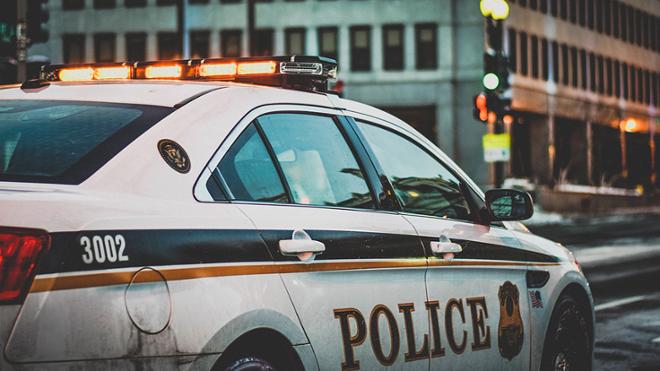Behind the scenes with Spider Riders
By Allison Tinsey, L'18
“A lot of what law students do is review police decisions with 20/20 hindsight vision,” said Lauren Ritter, L’17. “So being able to see an investigation unfold in real time allows a student to see why an officer makes the decisions he does.” That’s the concept behind the Spider Riders program at Richmond Law. “It's a great way to better understand law enforcement officer thinking,” said Ritter, one of the program organizers.
Spider Riders gives law students the opportunity to ride along with the officers from the University of Richmond Police Department and the City of Richmond Police Department while out on patrol. For the most part, students are silent observers, but gain real insights into police work during their ride-along.
Spider Riders was originally launched about 10 years ago as a byproduct of Corinna Lain’s Criminal Procedure course. Lain would require her students to take part in a police ride-along. When students who weren’t in her course wanted to get involved, the Spider Riders program was born. “Criminal procedure is a course all about police-citizen contacts,” said Lain. “Those contacts might be studied in a classroom, but they don’t live in a classroom. They live out on the streets.” Moving the students from the classroom to those same streets helps put theory into practice, said Lain.
Ritter helped re-launch the program after a conversation with Lain this year. After graduation, Ritter plans to clerk for the Arlington County Circuit Court and then pursue a career in criminal law as a prosecutor or working for the Department of Justice. “The program is valuable to my future legal career, because of the insight I'm gaining through my ride-along experience and the interactions with police officers,” she said. “If I can understand how an officer investigated and charged the offense, I believe I'll be better suited to prosecute or defend the case in the next stage.”
In Fall 2016, Ritter approached Chris Daniels, L'17, and the Criminal Law Society to engage more law students in the ride-along program. “I'm excited that the wider student population can now enjoy greater access to ride-alongs with RPD and URPD,” Daniels said. “[It's] an experience I view to be an invaluable and underutilized learning opportunity.”
The URPD ride-along begins with a tour of their facilities, which include a small evidence lab and dispatch desk. While patrolling, officers lend support to other officers making traffic stops or investigating reports of disorderly conduct.
Though students on a ride-along may not experience a patrol akin to an episode of “Law & Order,” they do get a chance to interact with officers and ask questions about the job. URPD officers are likely to discuss differences between working on a college campus and in a city, including their efforts to build better relationships with students. Officer Renee Walcott talked about how negative attitudes toward law enforcement in the media interfere with the culture the Department is trying to build on campus. Spider Riders helps build those relationships, she said.
“A ride-along is a fantastic way to improve one's understanding of the split-second decisions police officers must make,” Daniels said. “The experience provides a stark contrast to the way we evaluate those decisions in class.”
Ritter rode with an officer in the Richmond Police Department's 4th Precinct for a midnight shift. “I was able to talk to [him] about the hardest parts of his job, his favorite moments as a police officer, and his understanding of the case law that I was learning in my criminal law and procedure classes,” said Ritter.
“I highly encourage all law students, even those not interested in criminal law, to participate in at least one ride-along before they graduate,” said Daniels. Plus, “It’s also a lot of fun,” said Lain. “It is a fascinating experience for the student, and may well inspire them to take more classes in criminal law or to explore criminal law as an area of interest.”
